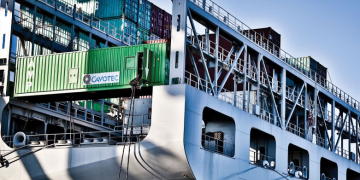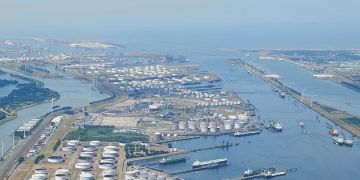Gard P&I Club focuses on contaminated bunkers and how to protect the purchaser. Namely, the Club sheds light on the bunker supplier and the supply contract and provides a summary of the current situation.
There is no new development in identifying the root cause of contamination and advanced testing. The only reliable means of establishing if the bunkers are contaminated are Gas Chromatography combined with Mass Spectrometry (GCMS) and Fourier Transform Infrared Spectroscopy (FTIR).
[smlsubform prepend=”GET THE SAFETY4SEA IN YOUR INBOX!” showname=false emailtxt=”” emailholder=”Enter your email address” showsubmit=true submittxt=”Submit” jsthanks=false thankyou=”Thank you for subscribing to our mailing list”]
However, Gard informs that there are unconfirmed reports that bunker suppliers are changing their standard bunker supply forms by excluding reference to ISO 8217 and reducing the time bars from 30 days to 15 days, or even 7 days.
In order to select a bunker supplier, there should be a process for selecting bunker supplier as the assurance of the quality of fuel is important. Some of the factors which should be borne in mind when selecting the supplier are:
- Market reputation of the supplier;
- Whether the supplier has any recent history of being involved in the supply of contaminated bunkers;
- Supplier’s financial standing;
- Whether supplier can furnish evidence of insurance for poor quality bunkers;
- Extent of control exercised over the bunker barge by the supplier;
- Terms and conditions offered. Specifically, supplier’s willingness to renegotiate the contract.
In addition, the bunker order should include a clear description of the bunkers to be supplied as the supplier is obliged to supply fuel as requested. At the stage, it may be mentioned to the supplier that the bunkers should be free of various anomalous components and fit for purpose.
It is worth noting that although the buyer may deem the fuel to be unsuitable due to contaminants and in breach of Cl.5 of ISO 8217, there is a valid argument against this line of thought that the fuel was nonetheless within contractual parameters.
Gard noted.
What is more pre-delivery testing should be part of the contract. Specifically, if buyers should know that the fuel supplied conforms to the specs and is not in any way contaminated. This is can be done only through advanced screening or testing, such as detailed GCMS, FTIR.
Moreover, if unable to renegotiate the law and jurisdiction clause governing the supply contract, buyers should know how the relevant jurisdiction treats bunker disputes.
Continuing, the full extent of loss may not be claimable, as bunker supply contracts have a limitation of liability clause, usually limited to the cost of the bunkers, and exclude consequential losses.
Regarding bunker disputes, evidence in the form of bunker samples, test reports, damaged parts, records, is also important.
Concluding, Gard mentioned that bunker quality disputes can be very lengthy, costly and complex but can be avoided if a right decision is made regarding the supplier and negotiation of the bunker contract.
Furthermore, increased dialogue between suppliers and buyers can achieve the right level of understanding and cooperation.





























































